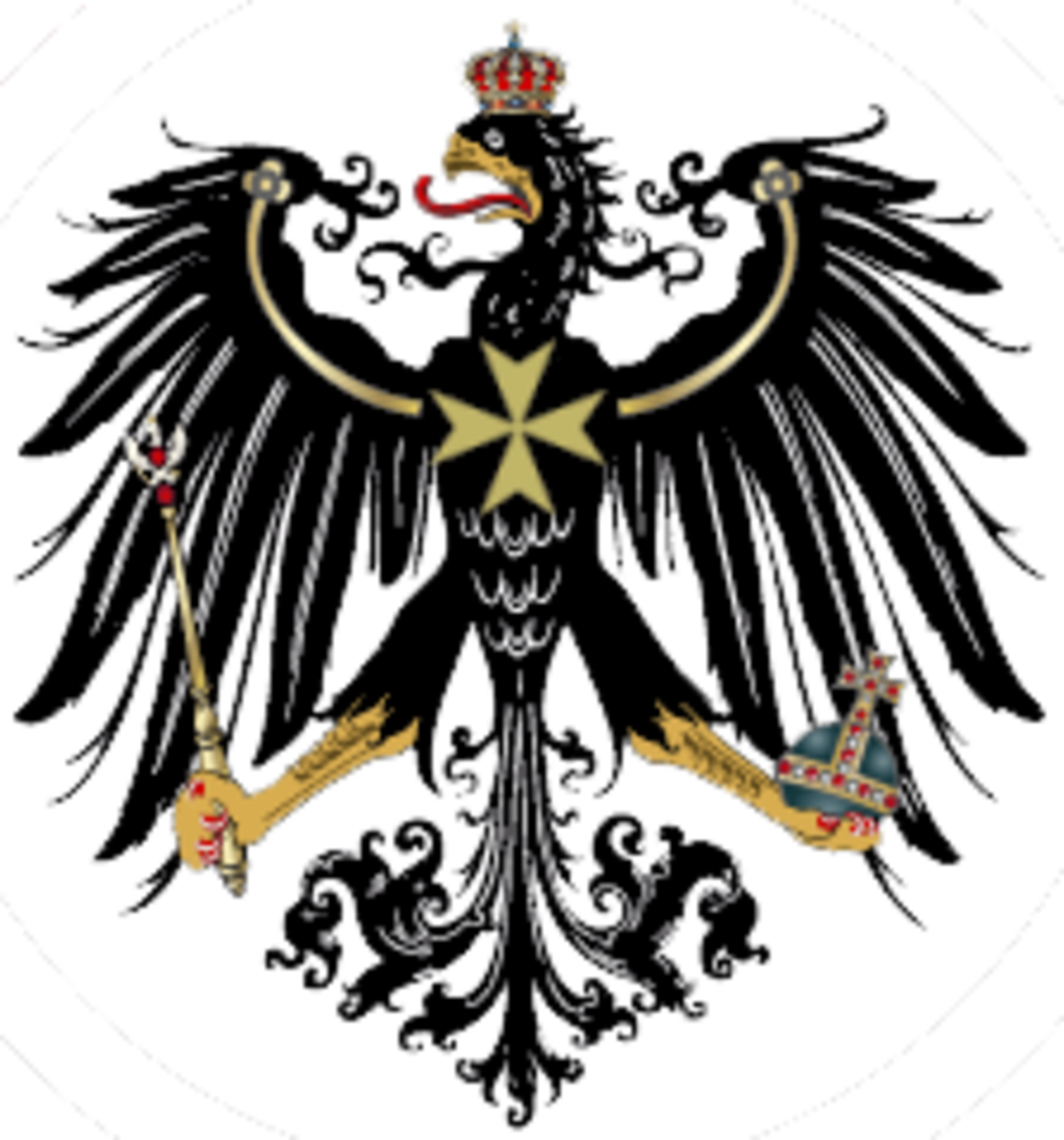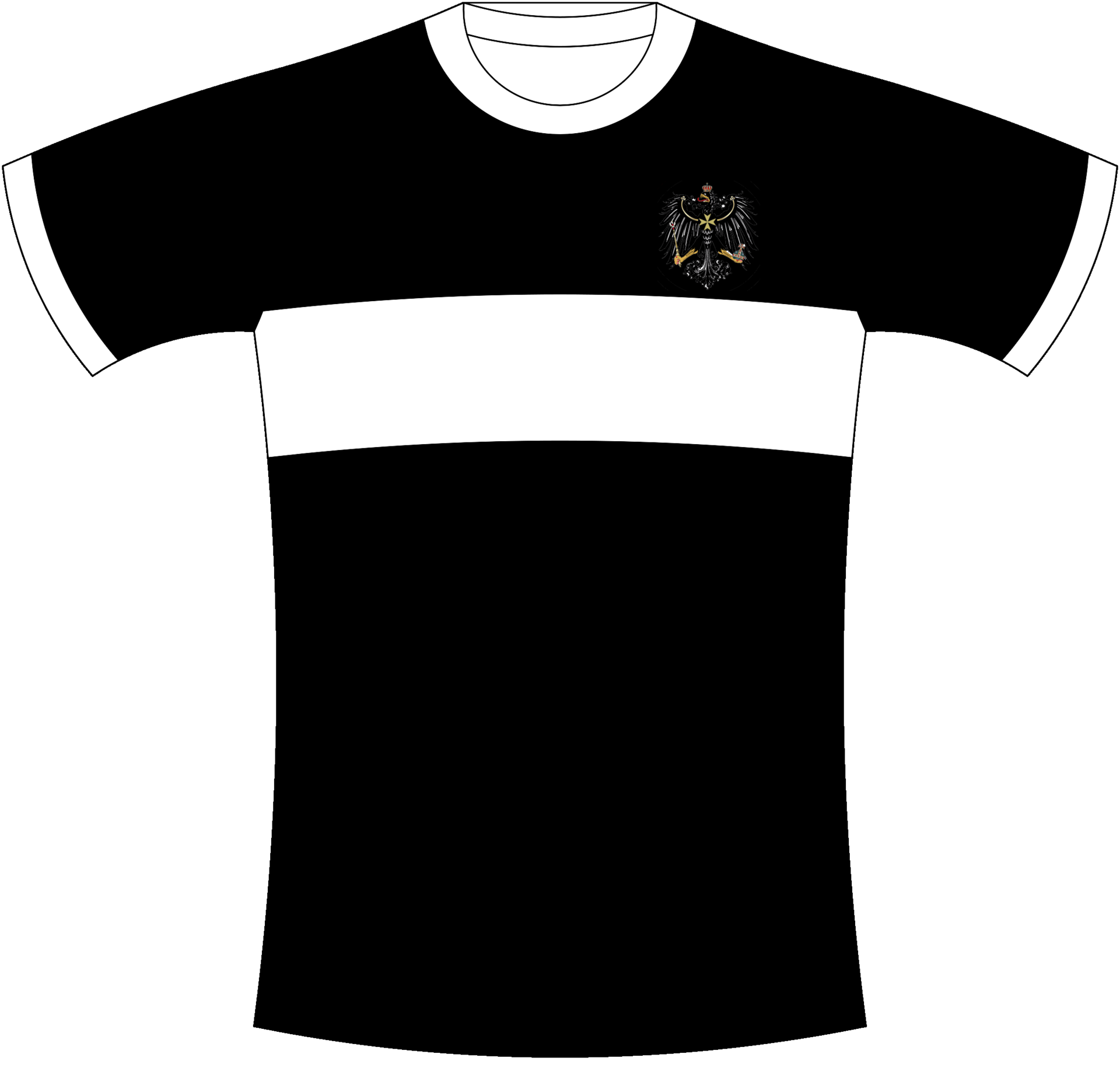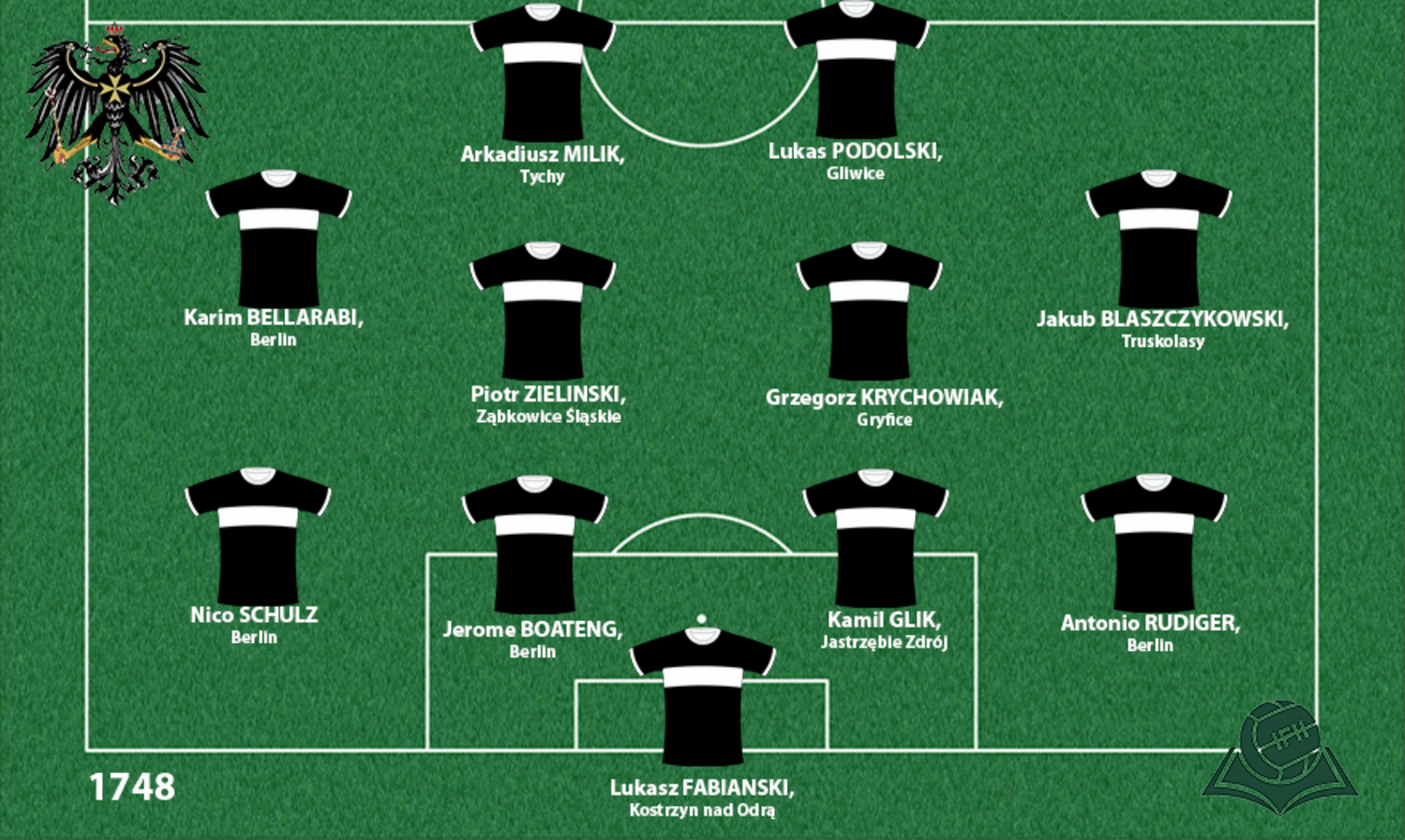Kingdom of Prussia
The Kingdom of Prussia during the reign of Frederick II ''The Grea''t (1740-86) became an important force in European politics. Interestingly, the Prussian state also extends partly within the Svetorim Empire, where its Hohenzollerni kings also had the most important estates (Brandenburg), which in the future will have a major impact on the (re) formation of this centuries-old political formation.

Coat of arms

Shirt
| Position | First name | Last name | Mjesto rođenja | Like | Dislike | |
|---|---|---|---|---|---|---|
| GK | Lukasz | FABIANSKI | Poznan |
3 |
1 |
|
| GK | Lukasz | SKORUPSKI | Zabrze |
1 |
2 |
|
| GK | Marius | GERSBECK | Berlin |
0 |
0 |
|
| DC | Kamil | GLIK | Jastrzębie Zdrój |
11 |
0 |
|
| DC | Robert | HUTH | Berlin |
0 |
0 |
|
| DRC | Antonio | RUDIGER | Berlin |
3 |
1 |
|
| DRC | Jerome | BOATENG | Berlin |
6 |
5 |
|
| DRC | John Anthony | BROOKS | Berlin |
0 |
0 |
|
| DRLC | Sebastian | BOENISCH | BOENISCH |
1 |
0 |
|
| DRL | Pawel | OLKOWSKI | Ozimek |
1 |
1 |
|
| DR/AMR | Yanni | REGASEL | Berlin |
0 |
0 |
|
| DL | Nico | SCHULZ | Berlin |
0 |
0 |
|
| DL/ML | Maximilian | MITTELSTADT | Berlin |
0 |
0 |
|
| DMC | Grzegorz | KRYCHOWIAK | Gryfice |
8 |
4 |
|
| DMC | Manuel | SCHMIEDEBACH | Berlin |
0 |
0 |
|
| DMC | Muhamed | BEŠIĆ | Berlin |
0 |
0 |
|
| DMC | Piotr | ZIELINSKI | Ząbkowice Śląskie |
10 |
2 |
|
| DMC | Tomasz | JODLOWIEC | Żywiec |
1 |
1 |
|
| MC | Gedion | ZELALEM | Berlin |
0 |
0 |
|
| MLC | Alfredo | MORALES | Berlin |
0 |
0 |
|
| AMC | Kevin Prince | BOATENG | Berlin |
3 |
0 |
|
| AMRLC | Anis | BEN HATIRA | Berlin |
0 |
0 |
|
| AMRLC | Hany | MUKHTAR | Berlin |
0 |
0 |
|
| AMRL | Jakub | BLASZCZYKOWSKI | Truskolasy |
3 |
0 |
|
| AMRL | Karim | BELLARABI | Berlin |
1 |
0 |
|
| SS/FC | Lukas | PODOLSKI | Gliwice |
12 |
1 |
|
| FRLC | Arkadiusz | MILIK | Tychy |
15 |
3 |
|
| FRLC | Dawid | KOWNACKI | Gorzów Wielkopolsk |
1 |
0 |
|
| FC | Maximilian | PHILLIPP | Berlin |
3 |
6 |
(Today: parts of northern Germany and northern Poland)
Prussia was named after the Prussians, a Baltic tribe whose territories from the 13th to the 15th centuries would be incorporated into their country or by Teutonic knights or Polish nobles, who would either Germanize themselves or polonize over time. In the first half of the 16th c. Teutonic master Albert Hohenzollern converted to Lutheranism and came to the forefront of the newly formed Prussian Duchy, and the key event in the "penetration of the Prussian name west" would be the beginning of the 17th century. when that duchy was succeeded by the line of the Hohenzollern, whose members at the head of Brandenburg were also the great election princes of the Holy Roman Emperors.
Thus, the Hohenzollern estates had two cores that had no contact borders: Brandenburg within the Empire and the Duchy of Prussia outside the Empire, which would allow them to lead a more independent policy and at the same time counterbalance the Habsburg Emperors. Early 18th c. proclaim the Prussian Kingdom based in Berlin. With marriages and alliances during the 17th century the Hohenzollers acquired large, geographically unrelated, estates from the Eastern Baltic to the Rhineland.
Both because of the pressure of powerful neighbors, Sweden and the Polish-Lithuanian Union, and for the defense of scattered possessions, Prussia was forced to strengthen its hitherto insignificant military force. As early as the second half of the 18th c. given the ratio of troops to inhabitants, Prussia is becoming the most militarized country in the world, and its key to its rise will be an emphasis on drill and draft and the deadly precise firepower of artillery. The state especially experienced a rise during the reign of Frederick II (r. 1740-86) when he pursued a policy of religious tolerance, freedom of thought (not action), and the immigration of foreigners who contributed to the Prussian economy, which allowed for more taxes to be collected, and the fact that a larger army was maintained, and consequently conquered more territory.
Sources
- Niall FERGUSON, Civilizacija: Zapad i ostali, Zagreb, 2012.
- Grupa autora, Povijest: Počeci novog doba (16. stoljeće), knjiga IX., Zagreb 2008.
- Grupa autora, Povijest: Doba prosvjetiteljstva (18. stoljeće), knjiga XI., Zagreb 2008.
- ''Prusi'', http://www.enciklopedija.hr/Natuknica.aspx?ID=50861
- ''Pruska'',http://www.enciklopedija.hr/Natuknica.aspx?ID=50863
- Coat of arms: http://cybernations.wikia.com/wiki/Culture_of_Nordland
